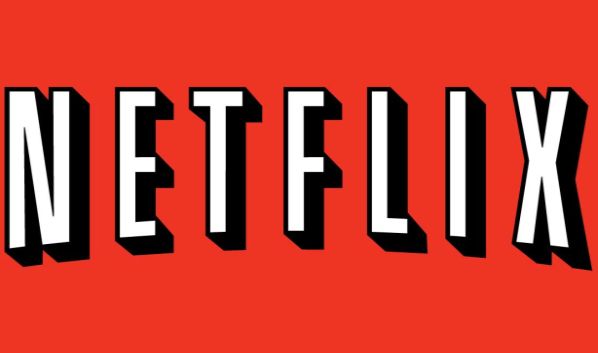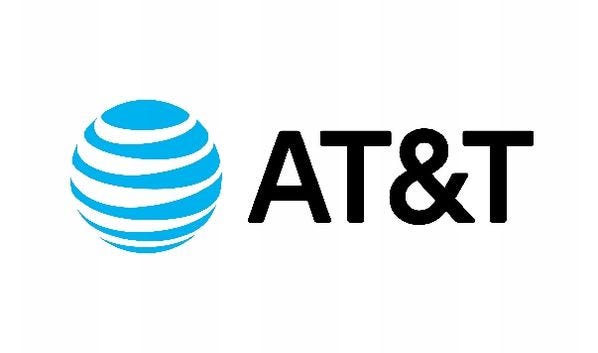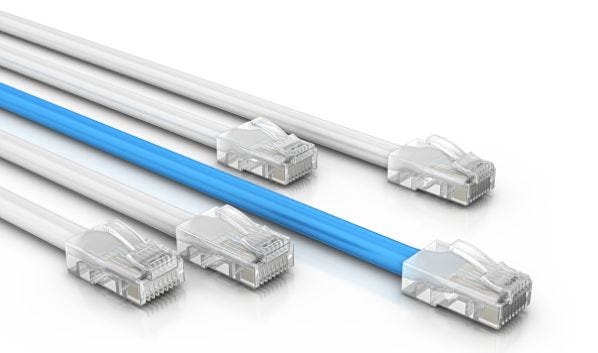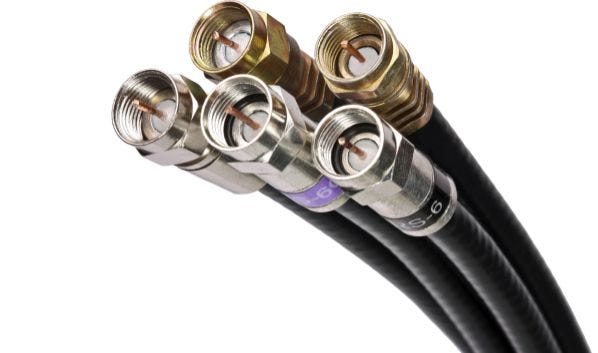Charter Communications on Wednesday completed its $71 billion acquisition of Time Warner Cable and Bright House Networks.
May 18, 2016
Charter Closes TWC, Bright House Acquisitions, Ready for Cable Prime Time
Charter Communications on Wednesday completed its $71 billion acquisition of Time Warner Cable and Bright House Networks.
This whopper of a deal, more than a year in the making, will create a cable powerhouse with almost as many subscribers as Comcast, the nation’s largest cableco.
“Current Bright House Networks and Time Warner Cable customers won’t see many changes right away, though in the coming months they will begin to hear more from us about the Spectrum brand, and the product improvements and consumer friendly policies that come with it,” said Tom Rutledge, chairman of the board, president and CEO of New Charter. “Charter’s objective is to provide high quality products at great prices, and back it up with excellent customer service, and we intend to continually improve the way we do business in order to be the very best at what we do.”
Our gallery takes you through a timeline of important events in this mammoth tie-up, starting with the collapse of Comcast’s effort to buy TWC, covering the pros and cons of the merger, and ending with the final regulatory approvals needed to turn Charter-Time Warner Cable-Bright House into one company: New Charter.
Keep your eye on Channel Partners in the coming days to see how Charter and Time Warner Cable partners will be impacted.
Follow senior online managing editor Craig Galbraith on Twitter.
Charter-TWC Merger: Comcast Deal Falls Apart

April 24, 2015: Realizing that combining the two biggest cable companies would be too difficult a pill for regulators to swallow, Comcast abandons its bid to buy Time Warner Cable.
The decision to end the pursuit of one mega-cableco was the right move, noted FCC Commissioner Tom Wheeler, who obviously was not in favor of it.
“The proposed transaction would have created a company with the most broadband and video subscribers in the nation alongside the ownership of significant programming interests,” Wheeler said.
Attorney General Eric Holder weighed in, saying, “The companies’ decision to abandon this deal is the best outcome for American consumers.”
Charter-TWC Merger: Making Their Own Deal
May 26, 2015: Just a month later, Charter steps in and tried to succeed where Comcast failed.
America’s fourth-largest cable company announces plans to merge with Time Warner Cable, the second largest. Furthermore, Charter takes on the obligation to buy Bright House Networks, previously on TWC’s wish list. The total package would be valued at $78.7 billion. (At closing, it was roughly $71 billion.)
Early indicators were that regulators might be more amenable to this deal.
“New Charter” would serve 24 million (now 25 million) customers in 41 states, the company said.
Click here to read more about how it all began.
Charter-TWC Merger: The Master Seal of Approval

May 28, 2015: Master agents are on board with the idea of a Charter-TWC merger, with one (Telarus) calling both companies’ channel programs “phenomenal.”
Both Trish Kapos of Telarus and Alan Sandler of Sandler Partners told us that the combination of the two cablecos would help partners sell more complex, multi-site services, “a direction we’re clearly seeing many of our partners taking,” Kapos told us. “Negotiations become simpler when there [are] multiple sites but one carrier, one project manager on the sale, and a single implementation process.”
Read more about what the two master agents had to say here.
Charter-TWC Merger: Netflix Weighs In

July 15, 2015: It seems everyone has an opinion on the mega-merger. Netflix says it’s all for it, so long as Charter is required to offer peering arrangements.
Netflix’s support for the merger is tied to its interest in limiting the number of commercial arrangements in which it has to pay to exchange traffic with Internet service providers. Last year, in opposing Comcast’s planned acquisition of TWC, Netflix said the combined company would wield too much power to charge arbitrary interconnection fees.
“Charter’s new policy is a welcome and significant departure from the efforts of some ISPs to collect access tolls on the Internet,” Christopher Libertelli, a former FCC official and Netflix’s vice president global public policy, wrote in an FCC filing.
Read more about Netflix’s conditions here.
Charter-TWC Merger: Large and In Charge

Oct. 5, 2015: Still many months from approval, Charter begins lining up who will be responsible for what in the combined companies.
Philip Meeks is tapped to serve as executive vice president, president of Business Enterprise Services, once the merger is completed. He currently holds the title of executive vice president and chief operating officer for Business Services at Time Warner Cable.
Learn more about Meeks here.
Charter-TWC Merger: AT&T Not a Fan

Oct. 16, 2015: Not surprisingly, AT&T weighs in, warning that coordination among cable companies could lead to a “single national cable company.”
In a letter to the FCC, AT&T says while it does not oppose the Charter/Time Warner Cable/Bright House merger, the companies should instead compete with one another.
The timing of AT&T’s letter is curious considering the Commission approved its $48.5 billion acquisition of DirecTV just three months prior.
Learn more about AT&T’s objections here.
Charter-TWC Merger: USTelecom Wants Conditions

Nov. 12, 2015: USTelecom, the trade organization representing AT&T, Verizon and other incumbent telephone companies, asks the Federal Communications Commission to impose conditions on Charter Communications’ pending acquisition of Time Warner Cable.
USTelecom was clearly concerned about anticompetitive behavior by the cablecos, calling on regulators to prohibit Charter and Time Warner Cable from giving to other cable companies or receiving from them “undue preferences.”
In a separate FCC filing that same day, an organization (ITTA) that represents midsize communications companies, raises concerns that the merged cable company “would create a much larger, vertically integrated entity with considerably greater market power that has the incentive and ability to hinder facilities-based video competition, and consequently broadband competition, to the detriment of consumers and the public interest.”
Click here for more on concerns from USTelecom and ITTA.
Charter-TWC Merger: A New York State of Mind

Jan. 11, 2016: Charter gets a key approval for its acquisitions from the state of New York.
As part of the deal, Charter commits to provide a minimum broadband speed of 60 Mbps, offer 300 Mbps throughout the state, build out its networks to unserved residential and commercial areas in its footprint, and improve its customer service.
Click here for the full story on Charter getting the green light in New York.
Charter-TWC Merger: DoJ Says Yes

April 25, 2016: Charter gets clearance for the merger from the Department of Justice. Approval comes with conditions, however, since the government filed an antitrust lawsuit over concerns that the new company would have a greater incentive and ability to impose restrictions on programmers, limiting their ability to show content through online video distributors.
Federal Communications Commission Chairman Tom Wheeler also recommends approval in an order distributed to his colleagues.
Read more about what the DoJ and FCC chair had to say here.
Charter-TWC Merger: Going to California

May 12, 2016: Charter clears the last of its regulatory hurdles to become the second-largest cable company in the U.S. The California Public Utilities Commission approved the Time Warner Cable and Bright House acquisitions.
Read the full story on the final regulatory approval.
Charter Closes TWC, Bright House Acquisitions, Ready for Cable Prime Time
Please click here for more Channel Partners galleries.
Read more about:
AgentsAbout the Author(s)
You May Also Like


